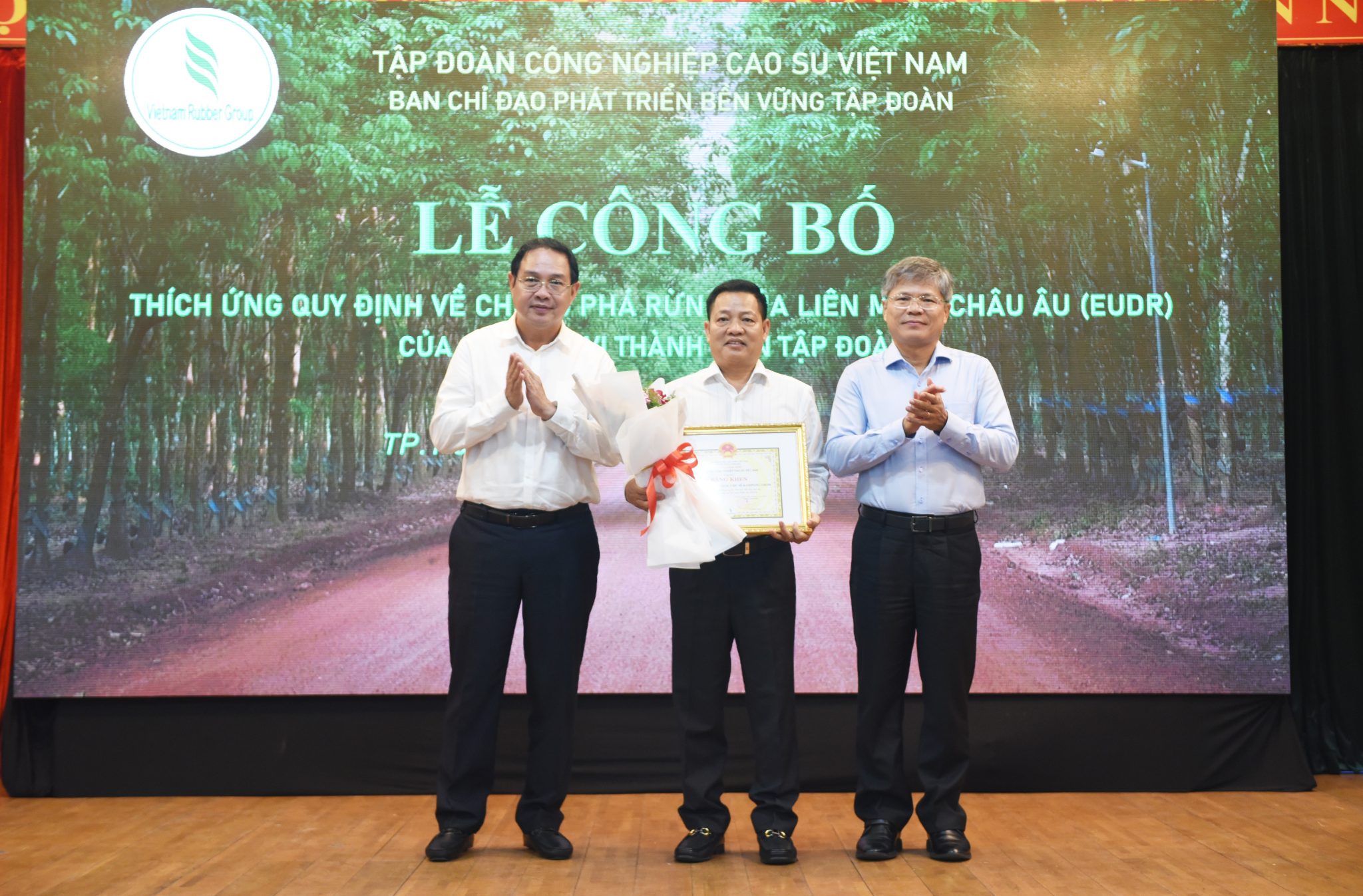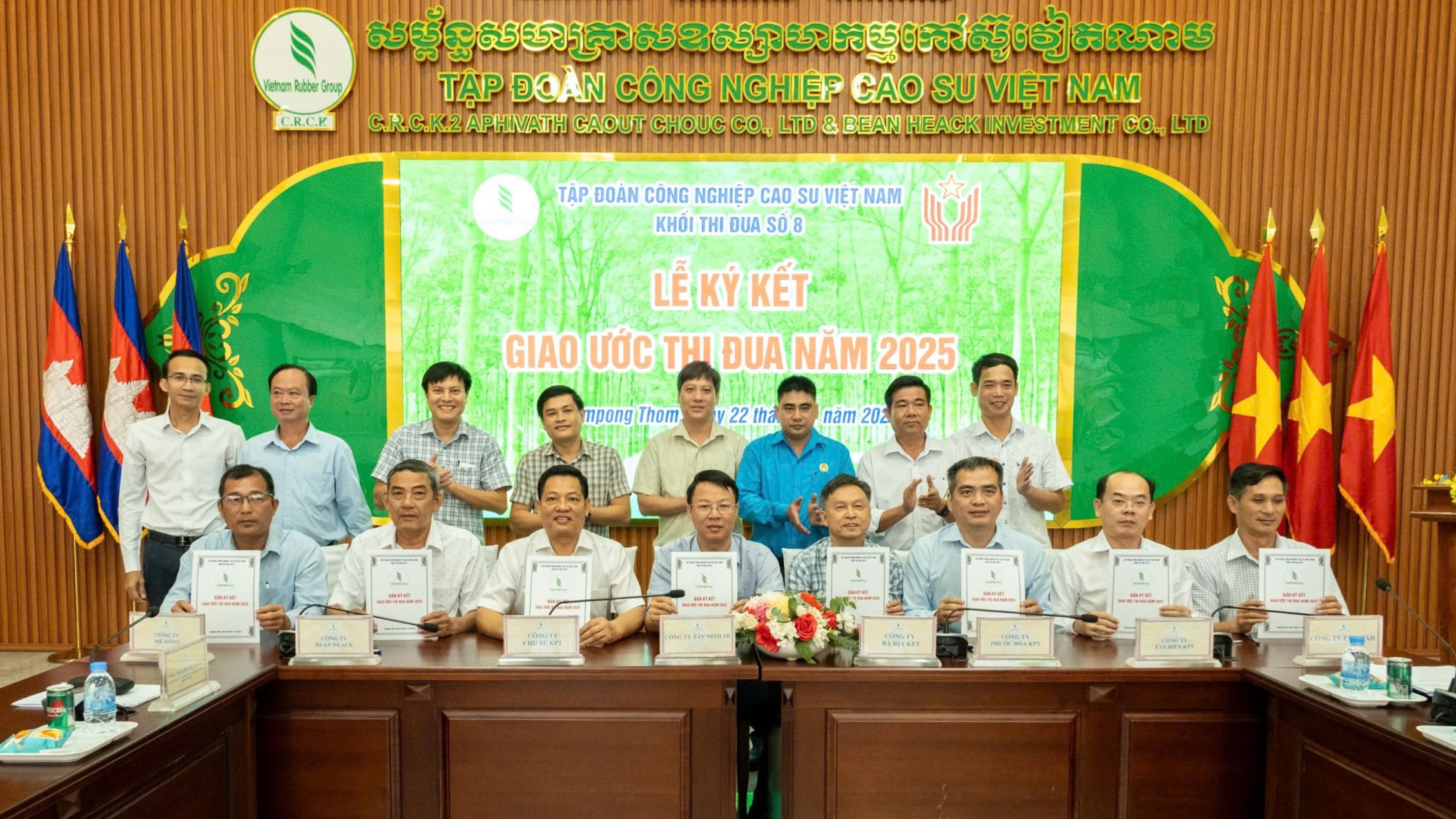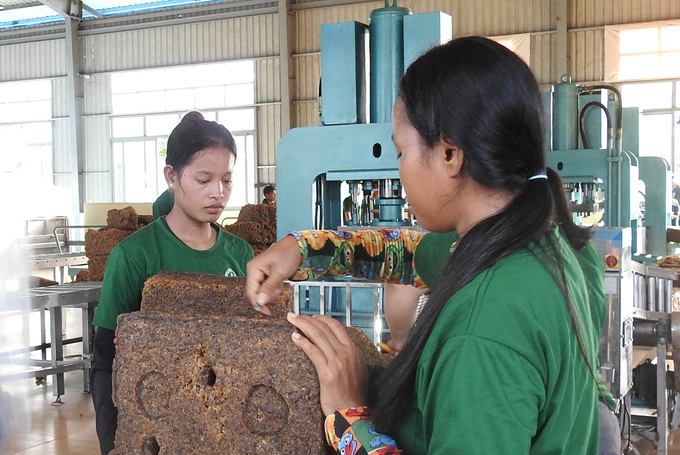(NLĐO) – A Vietnamese rubber factory in Cambodia has made headlines with its innovative approach to reducing production costs. The 180 billion VND plant, located in Stoung district, Kampong Thom province, has successfully replaced diesel oil with rice husk as its primary fuel source. This groundbreaking move not only significantly cuts the plant’s fuel expenses but also contributes to environmental sustainability by reducing greenhouse gas emissions.
The factory’s success has sparked interest in the potential of agricultural waste as a viable alternative fuel source, setting a new benchmark for the rubber industry.

The rubber processing plant, owned by the Vietnam Rubber Group, located in Cambodia, has a total investment of 180 billion VND.
He journalist visited the factory in mid-June, just as the factory was starting up production for the new tapping season of 2022.
The factory employs a 100% Cambodian workforce for direct labor. Vietnamese workers, as part of the investment agreement, fill less than 10% of indirect positions.

The rubber processing plant has commenced operations for the 2022 harvest season, employing a 100% Cambodian workforce for direct labor.
Nguyen Duy Linh, CEO of Chu Se – Kampong Thom Rubber, revealed that the plant is the industry’s largest, capable of processing 32,400 tons of rubber annually and supporting a raw material zone with a peak yield of 33,000 tons.
The company has two investment projects in Cambodia: C.R.C.K.2 and Bean Heach, covering an area of nearly 16,300 hectares. These projects were planted between 2010 and 2014, and are currently being fully exploited in the triangular area of three provinces: Kampong Thom, Siem Reap, and Preah Vihear.

The company faced numerous challenges during the construction of the massive factory
Despite facing bureaucratic hurdles, import tariffs, and a less-skilled local workforce, the plant, which broke ground in July 2017, opened six months ahead of schedule in January 2018. Its processed products have been well-received by both domestic and international markets

Mr. Nguyen Duy Linh highlighted the husk-fired boiler system behind him
The plant has successfully switched to husk biomass for its drying kiln since October 2021, cutting fuel costs by 25%.

The boiler equipment was sourced from Vietnam
Mr. Nguyen Duy Linh revealed that the husk used in the drying process is sourced from nearby rice mills, especially those supplying rice to the company’s workforce. This shift to husk as a fuel has resulted in substantial cost savings amidst the rising diesel prices, while also enhancing the quality of the company’s products.

The ready availability of husk in the vicinity of the plant has provided a significant advantage in the fuel conversion process.
In recent years, there has been a growing trend towards replacing fossil fuels with biomass, driven not only by soaring fuel prices but also by environmental concerns and the need to make the most of agricultural waste.

Rubber latex quality control laboratory

A VILAS-certified Quality Management Department, featuring modern equipment and a construction investment of over 1 million USD.
Furthermore, this massive rubber processing plant boasts a state-of-the-art Quality Management Department, built with an investment exceeding $1 million and equipped with VILAS-certified equipment. This department has been officially accredited by the Vietnam Accreditation for Laboratories (VAL) to comply with the ISO/IEC 17025:2017 standard.
The Quality Management Department is authorized by VRG to provide quality certification services to rubber companies under the Group’s umbrella in Cambodia, as well as to external entities seeking quality assurance.
Source: Người Lao Động








